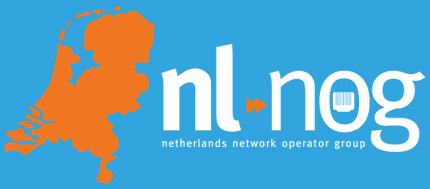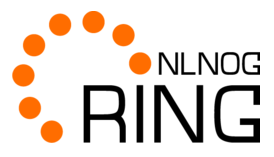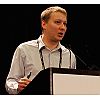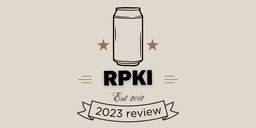Over the past few years, many new local Network Operator Groups (NOGs) have been set up, each of them defined by their own unique characteristics. We wanted to share some of our experiences from setting up the Netherlands Network Operator Group (NLNOG).
How it all Started

NLNOG started almost fifteen years ago: the humble beginnings were a mailing list, an IRC channel and a yearly social get-together. For many years this was enough to build a community. After all, in the Netherlands we already had quite some excellent industry events where we would meet each other. However, we eventually concluded that our community required more substance than just hanging around at customer events: we needed a platform that would allow us to come together to share our technical knowledge and experiences. Especially those of us working for competing companies! We also wanted to create an environment that encourages young people to interact with "old-school" network operators to support the next generation.
In September 2014 we organised a one day event with presentations from local community members. The meeting was organised by a group of volunteers and managed with a very small budget (less than 1000 euro). It turned out there was a big demand for technology oriented events like this. All 60 available seats were booked weeks in advance and the feedback was very positive.
A year later, we welcomed our first foreign guests! From now on, all presentations would be in English to accommodate a growing mix of Dutchies, expats & international visitors. In 2016 roughly 200 people attended the NLNOG Day. We continue to strive to bring the community together in front of excellent content. Well, not just technical content, but also fun: NLNOG was the first NOG to hand out IPv4 /24s as prize at the infamous quiz. :-)
Formalities
When financial and insurance issues are involved, like bank accounts or commercial venue contracts, you need a formal entity. In late 2014 we set up the NLNOG not-for-profit: a legally registered non-profit foundation under Dutch law, with an executive board that can attract funding and sign contracts. We were lucky to have a number of passionate people volunteer for the board. Each board member knows the community very well and are willing to spend time on NLNOG. The board consists of 5 people from various market verticals, each of them representing on personal title. To send a clear message to the sponsors and the community about how contributions are spend, the board receives no compensation.
Regarding funding for our events and projects, we are always looking for a multitude of sponsors, who can contribute roughly similar amounts. Each sponsor receives the same perks, we value a small amount from a sole proprietorship as much as a generous donation from a multibillion conglomerate. For instance, at the last NLNOG Day we were lucky to have 17 sponsors, this is a clear show of support from the industry. So far we have managed to avoid charging a registration fee, and we are planning to keep it that way. This is especially important to attract newcomers. However, we do accept donations from organisations and individuals who want to support us. What we don't accept is trading sponsorship for stage time. Presentations are evaluated purely on their content and the quality of the speaker. Stage time is too precious to sell!

Projects
Building a community also means working together on joint projects that make the Internet a better place. In 2010, we started NLNOG RING, a platform that facilitates network debugging by allowing operators access to certain machines in each others' networks. This started out as a local initiative, but now consists of 435 RING nodes in 53 different countries. We believe that this shows the value of local communities and how they can contribute globally.
Lessons Learned
The NLNOG community is centered around the Dutch engineering community and that's what we try to cater for, both with regards to outreach as well as presentations. Our attendees appreciate local content, but we should remember that the Internet is a global effort and network operations cannot be discussed in isolation.
When picking dates for the NLNOG Days, we initially tried to avoid clashing with other events, but that is becoming increasingly difficult as the number of NOG- and industry events increases. This is a great problem to have! We no longer worry too much about potential clashes with other NOGs in other countries but we will try to avoid to clash with Dutch events.
We also use the NLNOG umbrella to encourage and support community projects. For instance, we encourage the publication of open source software under the NLNOG brand. This way we can bring engineers from different companies together, and enable them to build toolsets that solves their common problems.
Finally, we learned we needed a clear policy to encourage civilised online and offline communications. This resulted in an IRC policy, that we published on the NLNOG website, and we are working on a code of conduct which will help guide our events. We have recognised the importance of explicitly stating how to treat each other. Without published guidelines it is impossible to call out bad behaviour or mediate in conflicts.
Feedback and Suggestions
Do you have experience with operators groups in your country or region? Share your thoughts in the comments below. What challenges did you face when setting up a NOG? Are you in the process of setting up an operators group and have questions? Feel free to post your questions and suggestions here.
You can also find a list of network operators' groups worldwide on wikipedia.
This article is based on a presentation we gave at the Italian Network Operators Group ITNOG in November 2016. The slides can be found on the ITNOG 2 website and the video is available here on YouTube. The next NLNOG event (called "Lekker weer NLNOG") is on June 16th 2017 in Ede, Netherlands.





Comments 2
Comments are disabled on articles published more than a year ago. If you'd like to inform us of any issues, please reach out to us via the contact form here.
Rob Evans •
It might be worth mentioning that at RIPE 69 in London we had a 'NOF BoF' to try to get like-minded NOF/NOG organisers together in a room and talk about the challenges in running the groups. Is it time to do another? https://ripe69.ripe.net/programme/meeting-plan/bof/
Hide replies
Alexander Isavnin •
Support!